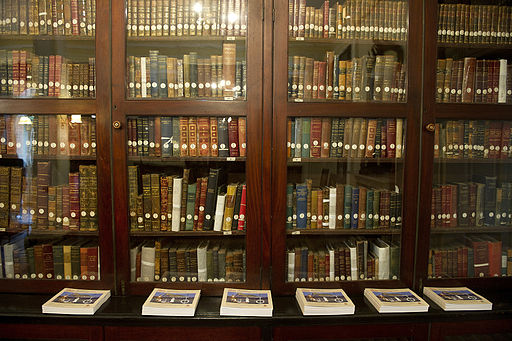
The Great Escape
While long, hot summer days may be few and far between in the UK, the sunny season often evokes the desire, or intention, to escape. While escapism may take a different form for each individual, research suggests that people prefer to delve into a good book, rather than go to the cinema, or browse social media (Publishers Association 2023). So, what compels us to turn pages, even with the multitude of multi-media at our fingertips?
In our somewhat ironic universe, the origins of great, riveting literature often lie in fear on a collective scale. It is thought that ‘escapism’ emerged from society’s fluctuating and evolving fears and anxieties, marking a transition from literally escaping physical danger, to an ideological concept from the 1930s onwards. Terms such as ‘anxiety’, ‘claustrophobia’, and ‘paranoia’ are all referenced as common cultural emotions which motivate the urge to escape. As awareness of society’s collective consciousness grew, so did the notion of escapism as ‘taking flight from reality’ (Heilmen 1975). Thus, with contemporary society littered with instant news, is it surprising that populations have continued to use literature and its universality (as opposed to other technologies) as a mode of escaping reality? Perhaps not.
Particularly, there are so many texts themselves which explore the theme of escapism; characters and settings we can relate to on an existential level can be the most absorbing. Tennessee Williams, for instance, is argued to portray ordinary, American families whose suffering reflects his own life experiences, and consequently creates imaginary worlds to escape his reality (Aiaqeel 2016). It is these imaginary worlds which readers worldwide find irresistible.
What’s more, the lure of escapist literature is only enhanced by the introduction of hope. If escapist literature is to remedy feelings of fear and anxiety, it must provide us readers with its antithesis: a sense of hope. Segal (2024) recommends several books to escape ‘overrated’ real life, where texts with an ‘immersive loveliness’ enable true escape. That does not mean to say escapist literature must over-emphasise positivity.
In contrast, those texts which uplift and immerse us the most are those which include some ascent for the protagonist; a problem, a journey, and hopefully, a solution (or the possibility of one). Let’s take Bronte’s Jane Eyre, for instance. Its dark, feminist themes portray the somewhat misaligned fates of Jane and Mr. Rochester, whose relationship is a passionate but complicated one, with several casualties along the way. Yet it remains a classic, haunted romance and a superb example of escapist literature.
The timeless notion of such texts is what makes readers feel books are superior to other materials in escaping reality. Whatever way you choose to escape your own reality from time to time, it is a their ability to transport us to planets, people, and psyches distant from our own that is found only in the pages of a book.
References:
How We Escape It: An Essay – JSTOR Daily
(PDF) Escaping Reality in Tennessee Williams’s The Glass Menagerie (1944), A Streetcar Named Desire (1947), and Cat On A Hot Tin Roof (1956) | SMART M O V E S J O U R N A L IJELLH – Academia.edu
Five of the best escapist books – The Guardian
One in three say books offer best form of escapism when having a bad day – The Guardian